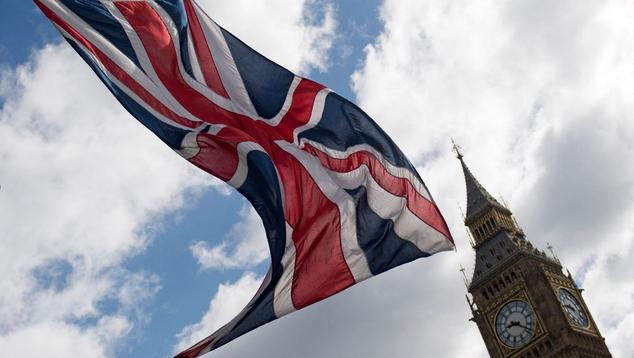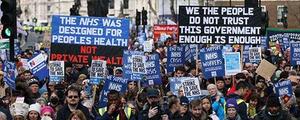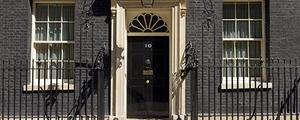LONDON -- The Conservative Party is seeking to extend its stay in office after the general election next week but faces an uphill battle, with Labour well ahead in the polls. As ever, the economy is at the forefront of the campaign, with taxation and public spending plans dominating headlines.
In some senses, Gallup surveys show Britons are heading into the election feeling relatively good about their economy compared with similar wealthy economies, such as other members of the Organisation for Economic Co-operation and Development (OECD). But in other respects, the picture is far less positive.
1. Britons Among the Most Pessimistic About Their Economy
Gross Domestic Product (GDP) in the U.K. is expected to grow by just 0.4% in 2024, well below the average for OECD countries (+1.7%). This gloomy economic outlook is mirrored by the pessimism among the U.K.’s population.
In 2023, 28% of Britons felt economic conditions in their local area were getting better, alongside 31% who felt the same about their living standards. Only Türkiye scores statistically lower than the U.K. for economic optimism on both measures.
The U.K. economy has experienced a challenging few years after COVID-19 and the cost-of-living crisis, exacerbated by former Prime Minister Liz Truss’ mini-budget that sent mortgage rates climbing in October 2022. That month, inflation peaked at over 11%, but it has since fallen back to 2%.
Historically, the only year that Britons have been less optimistic than 2023 about their economic futures was in 2009 during the financial crash, when 21% felt the economy was getting better.
2. Half of Britons Feel Comfortable on Their Present Income
While Britons’ optimism about their economy is low compared with optimism in the OECD overall, they rank high for feelings about current household incomes. Almost half (49%) of Britons were living comfortably on their income in 2023, which is significantly higher than the OECD median of 41%. Only Norway (62%) and Denmark (56%) scored statistically higher than the U.K. on this measure last year.
The percentage of Britons who feel they are living comfortably on their present household income has risen steadily since the financial crisis. The OECD median has followed a similar trend over the same period.
However, there is a tension between feelings about household income today and perceptions of the economy tomorrow. Among the 49% who are living comfortably on present incomes, just 35% think their local economy is improving. Most people who are living comfortably in the U.K. still feel things are getting worse. No other country in the OECD scores lower for economic optimism among those living comfortably.
3. Job Market Looking Up, but Still Low vs. OECD
Britons have not been more positive about the state of the job market than they were in 2023. Last year, 49% thought it was a good time to find a job, a recovery from the rapid decline during COVID-19 and in line with the figures from 2022 and 2017 to 2019. Perceptions of the local job market track with the national unemployment rate in the U.K. -- as one goes up, the other goes down.
Even though this 49% figure is high compared with the long-term U.K. trend, it remains in the bottom half of OECD countries (median of 56% “good time”).
4. Confidence in Financial Institutions in Line With OECD
British confidence in financial institutions and banks has been flat for several years at 56%. Confidence in financial institutions has rebounded gradually since the financial crash, when it reached a low of 27% in 2012, but it has yet to match its pre-2008 levels (64% in 2006).
The U.K. doesn’t stand out relative to the OECD for confidence in financial institutions. Rather, it is in the middle of the pack, in line with the 2023 OECD median, also 56%.
Bottom Line
Recent economic perceptions in the U.K. are somewhat of a mixed bag. While a relatively high proportion of Britons are living comfortably on their present income, the U.K. remains one of the most pessimistic countries in the OECD about its future economy and living standards.
Anemic economic growth and widespread pessimism about the future will be not only on the minds of many voters in polling booths, but also one of the major challenges facing the prime minister -- whoever that may be -- on July 5.
To stay up to date with the latest Gallup News insights and updates, follow us on X @Gallup.
For complete methodology and specific survey dates, please review Gallup's Country Data Set details.
Learn more about how the Gallup World Poll works.




